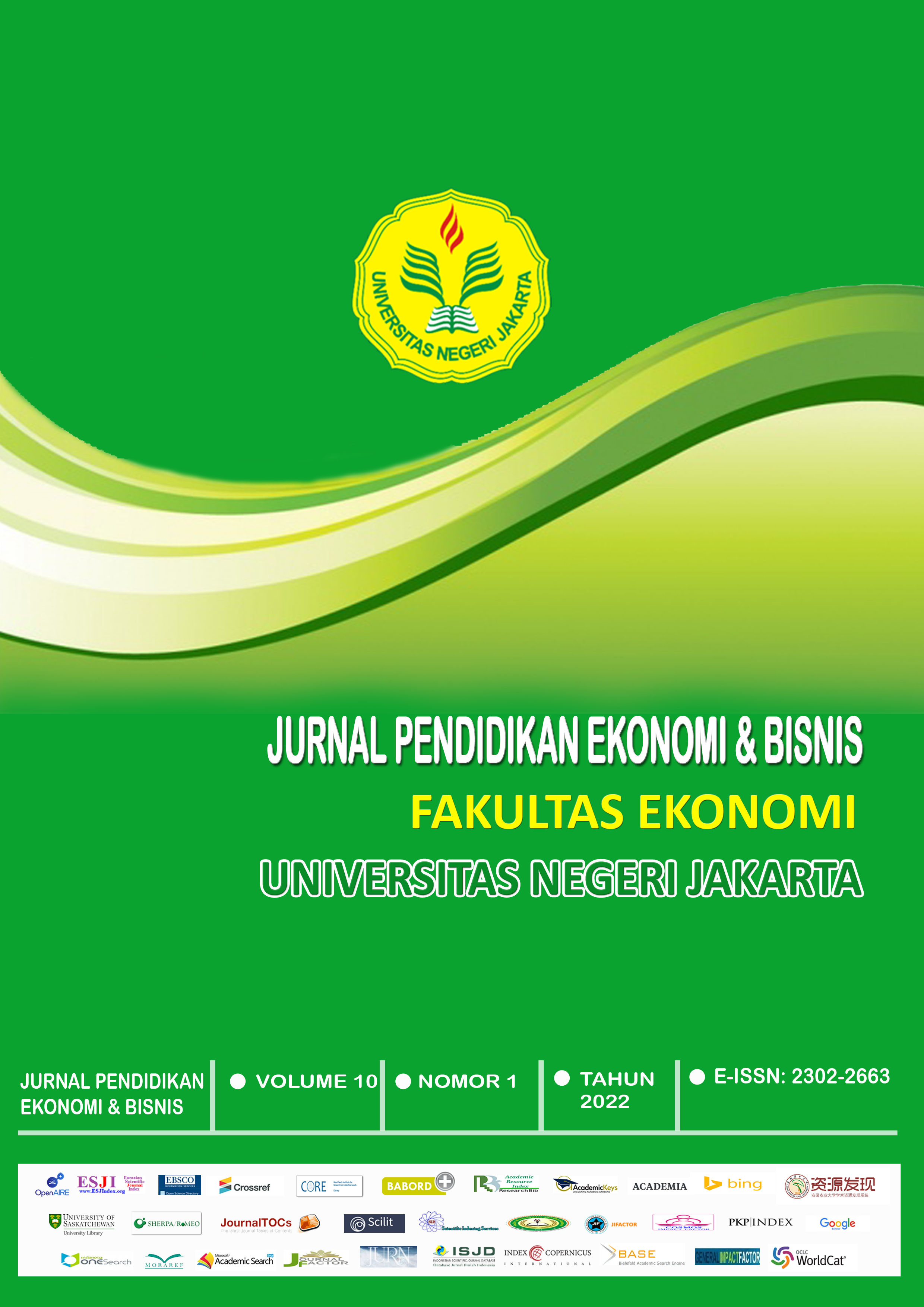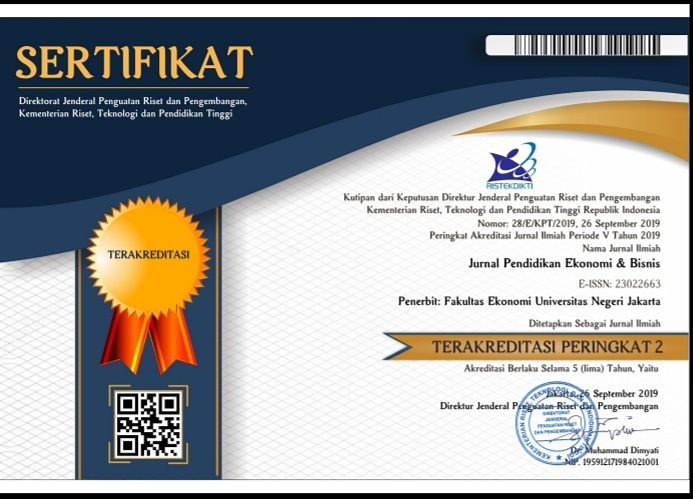Project-Based Assessment Blended Learning To Improve Students' Psychomotor Competence
DOI:
https://doi.org/10.21009/JPEB.010.1.3Keywords:
Project-based assessment, Blended learning, Psychomotor competenceAbstract
This research and development aim to produce an appropriate blended learning-based assessment project that can improve student competence. Project assignment by utilizing various contemporary applications such as Tik Tok, Instagram, and Youtube as a medium for product promotion. The data were researched and developed using Research and Development methods, the research model used was adopted from Borg & Gall. The feasibility of the development product in the form of an instrument was validated by a validator of assessment experts, validators of material experts. Student competence is measured by cognitive and psychomotor aspects. Data analysis by percentage and paired sample T-test analysis. The results of expert validation were declared "Very Feasible" with a score of 86.4% (cognitive) and 88.2% (psychomotor). The results of material expert validation were 89% (cognitive) and 87.5% (psychomotor) with the "Very Feasible" category. The results of the large class trial resulted in a score of 86.7% for the teacher's response and 88% for the student's response to the assessment instrument product. The increase in student competence is measured through project assignments, where the results of the calculation of the paired sample T-test show that there is a difference in the average score before and after using the assessment instrument in either the cognitive or psychomotor domain.
Downloads
Published
How to Cite
Issue
Section
License
Articles in Jurnal Pendidikan Ekonomi & Bisnis are Open Access articles published under the Creative Commons CC BY-NC-SA License This license permits use, distribution and reproduction in any medium for non-commercial purposes only, provided the original work and source is properly cited. Any derivative of the original must be distributed under the same license as the original.








